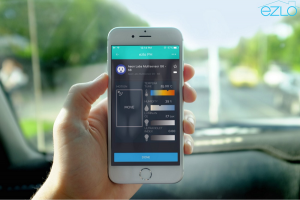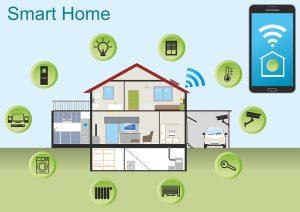Are Voice Management Technologies Ready For Your Smart Home?
- March 30, 2022
- by Ezlo Admin
Voice management systems are currently the most advanced in terms of smart home device support.

Voice assistants are on the rise. Apple’s Siri, Google Assistant, Amazon’s Alexa, Microsoft’s Cortana, and the newest Samsung Bixby are all created to manage our everyday tasks with voice.
Working with email, learning the weather, finding the best routes, playing music, and tons of other things are indeed what we do every day, but what about managing your smart home system with your voice: is this technology ready, and does it handy enough and secure to use?
To find it out, we’ll need to evaluate the available functionality of voice assistants and their security.
Functionality
Amazon Alexa and Google Assistant
These voice management systems are currently the most advanced in terms of smart home device support.
Amazon Alexa is represented in three home devices: the Amazon Echo, the more compact Amazon Dot, and the most portable Amazon Tap. Google Assistant is available with Google Home and as an application on mobile devices and in Chrome.
Alexa’s and Assistant’s main advantage is open APIs. In other words, Amazon and Google offer software development kits allowing third-party device manufacturers to incorporate voice control support in their products.
As a result, with Echo, you can already manage Belkin switches, Philips Hue bulbs, and many other smart home gadgets. Google Home is also pretty advanced when it comes to smart home management: it knows out of the box how to work with Nest, August Smart Locks, and more.
If you have a smart home network already installed, the most important thing here is compatibility with your smart hub. Both Google Assistant and Amazon Alexa work with Wink Hub, Samsung SmartThings, and other smart hubs, letting you manage your home automation system with voice.
And even if your smart hub is still not on the list, if it supports IFTTT, you can still connect it to Home and Echo, since both of them integrate perfectly with this service.
Apple Siri
Apple’s Siri was the first intelligent voice assistant to hit the market from the list, which is why I mention it here. It is currently presented on mobile devices like iPhones, iPad, and watches.
Not only you can’t make Siri your smart home voice assistant without buying an expensive phone, tablet, or smartwatch, but you also should have your Siri-enabled device at hand for it to hear your voice commands, which is inconvenient.
In addition to that, Apple’s technology supporting smart home technologies is called HomeKit and it is proprietary. That means you’ll need to get the Apple TV, which will act as a hub for your smart home network, and all the devices connected to it should be HomeKit compatible, which significantly limits the list of offerings to choose from.
Other devices
Since Google and Amazon are one of the most famous companies in the world, their devices get the biggest coverage in the media. Still, there are a lot of other worthy alternatives you may want to learn more about, such as CastleOS CastleHub, Athom Homey, and Mycroft.
A word on security
Despite the evolving functionality and possibilities of voice assistants, you should be aware of how they work.
Years ago, voice processing available now was simply impossible.
Voice recognition and understanding the meaning of what you’re saying are advanced technologies involving neural networks. They required years to be developed, and now they’re so complicated they consume computing resources your devices still can’t provide. That’s why every word addressed to the voice assistant is sent to the company’s servers for quick recognition.
(The second reason was the slow Internet connectivity making it impossible to send the voice data and get back the answer in a matter of milliseconds. Now, with 4G and WiFi 802.11n it’s handled.)
Now, I’m not telling you that having a voice assistant necessarily means sacrificing your privacy. However, you should pay attention to how the company of your choice processes your data, which is usually described in the Privacy Policy.
In addition to that, I’d highly recommend defining some safety rules. To avoid unexpected usage of your assistant, you may want to (if applicable) consider changing the wake word, muting the mic on particular occasions, and locking the voice purchasing function with an additional password.
The functionality of voice assistants is already advanced enough to provide wide voice control of your home. Still, its possibilities depend much on your existing smart home system.
Whether you have a supported smart hub or devices and if it can meet your expectations are the most important factors when considering adding voice control capabilities. Yet the more devices you have in your home, the more you should care about private data security.




